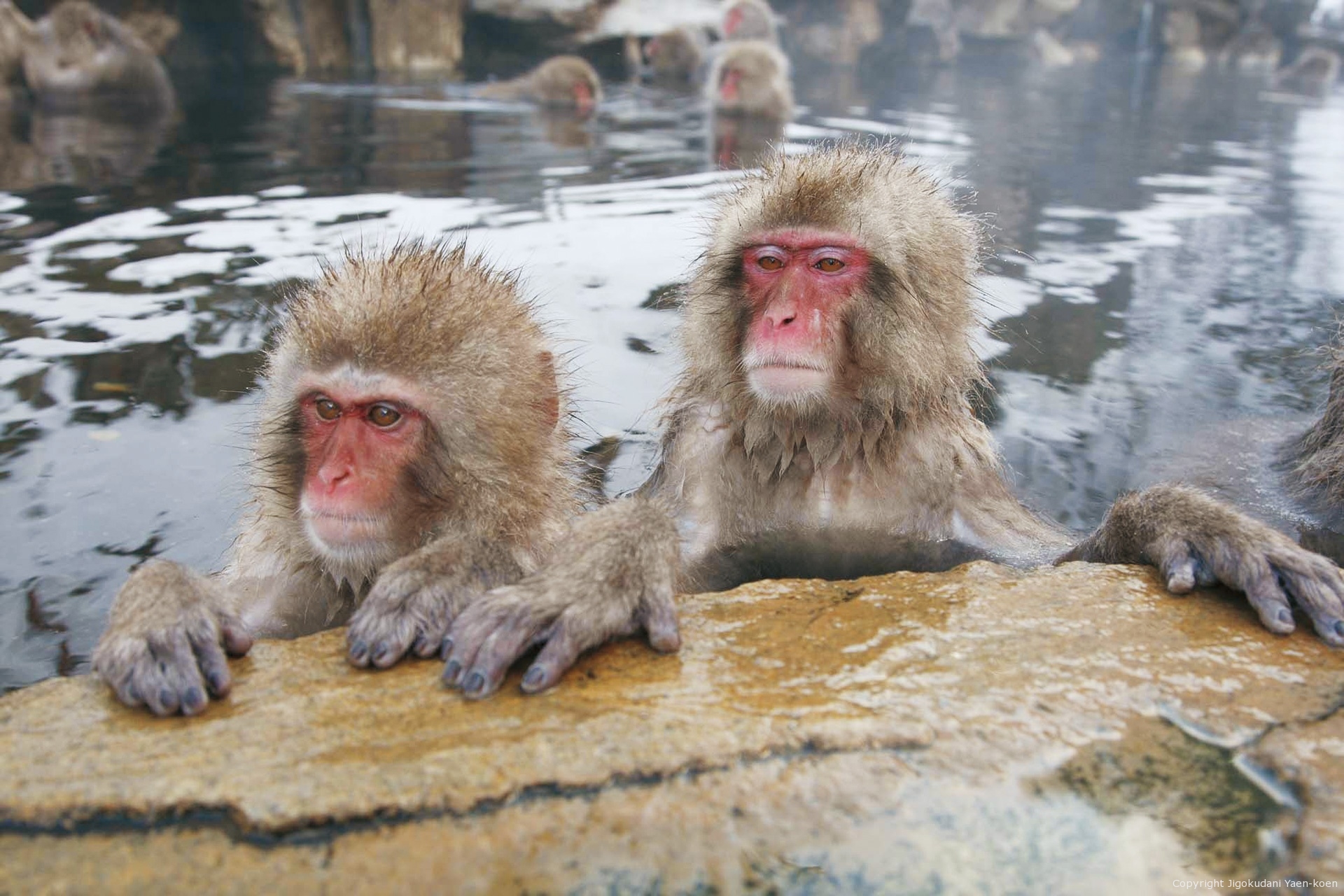Jigokudani is a place of contrast. Snow-covered for a third of the year, it nevertheless hosts hot springs which have earned it the nickname “valley of hell”. Isolated, you have to walk 25 minutes in the forest before reaching its famous springs, yet it is visited every year by thousands of tourists. And that, of course, it owes to its curious hosts: a colony of Japanese macaques called “snow monkeys” who have got into the habit of squatting in a pool of hot water ( onsen ) which is entirely reserved for them.

A sanctuary for monkeys
In 1957, Sogo Hara, a recently retired hiker, came across this group of macaques who had taken refuge in the valley of hell. The expansion of ski areas and the hostility of agricultural populations had pushed them back to this hostile region. At the time, the monkeys used to frequent an inn called Korakukan where they were fed. They had also become accustomed to frequenting the thermal spring attached to the establishment. Thus, at the instigation of Sogo Hara, the Jigokudani monkey park was founded in 1964. The goal was to preserve the colony by fixing it in a natural habitat, the valley of hell, so that they would not not return to agricultural areas where they were undesirable.
Today the park is occupied by about 150 Japanese macaques. It is recommended to come in winter to see them bathe in their pool, because when it is warmer they have no interest in taking refuge there. It is forbidden to feed the monkeys or even to touch them so as not to alter their wild state. Also, the park officials remind us not without malice that here it is the humans who are invited to the monkeys and not the other way around.

snow monkeys
The Japanese macaque is the species of primate that lives the farthest north if we exclude humans. It is very resistant to cold and snow. With his thick fur, it looks like he’s wearing a thick hooded coat. The hot springs present in their habitat, however, are a way for them to warm up when the temperature gets too extreme.
Sources : Snowmonkeyresort , Wikipedia
Subscribe to our email newsletter to get the latest posts delivered right to your email.

Comments